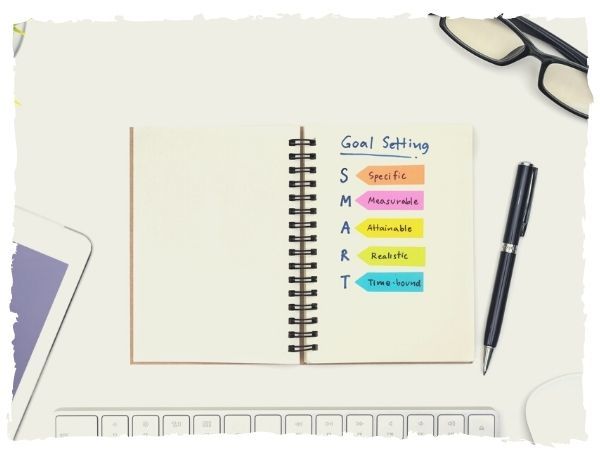What role do you play in your own life? Are you the one who is in charge?
When things are going well, chances are, you’re eager to accept responsibility for that. However, when things take a turn for the worse, blame-shifting is a common technique people use to prevent others from seeing them at fault.
As your environment evolves, you have a choice: either attribute your outcomes (both positive and negative) to factors within your control, or shift that blame to external forces that are outside of your personal domain.
Whichever stance you take determines your “locus of control” or to what extent you believe you have control over your experiences that have an impact on your life.
The orientation you choose has an impact on the bigger picture of your life–those with an internal locus of control accept responsibility for their successes and failures, and those with an external locus of control credit external sources such as luck or misfortune for their outcomes.
Here are some signs that you have an external locus of control and you need to rethink the amount of responsibility you accept for your actions.
If you can relate to a few of these things, chances are, you should read this article until the end of you can learn how to take responsibility for your actions (and ultimately your life) to increase your chances of living a successful and fulfilling life.
But before we look at some actionable strategies you can use for taking responsibility for your actions, let’s look at the relationship between accepting responsibility and the stigma attached to being at fault.
Taking Responsibility vs. Accepting Fault
Yes, sometimes taking responsibility requires you to accept fault. However, these aren’t mutually inclusive concepts.
In the past, we have talked about Mark Manson’s book, The Subtle Art of Not Giving a F*ck. In his book, he argues that people tend to equate taking responsibility for their actions with accepting fault.
Because of this, people tend to avoid taking responsibility. However, there is a difference between being responsible for our lives and blaming ourselves for our circumstances.
You blame yourself for things you did in the past, so admitting fault is referencing your former actions. However, taking responsibility is more about the present. What actions are you choosing to take right now?
Others may be to blame for your current unfavorable situation–maybe your significant other cheated on you and the relationship fell apart or you were recently robbed and you have been left to pick up the pieces. But, these outside factors don’t dictate what you’re going to do about it now.
You get to choose your perception of your circumstances and how you react to them. You’re not to blame, but it’s your responsibility to do something to live your life in line with your values and aspirations.
Let’s look at things you can do to take responsibility for your life.
5 Ways to Take Responsibility for Your Actions (and Life)
1. Rectify Your Relationship with Time
One of the most common excuses that people give when explaining why they can’t do, be, or have what they want is, “I don’t have enough time.”
This is the excuse people give for not getting in shape, not making steps to advance their career, not dating, and not spending more time with friends and family.
To take responsibility for your life, you have to be active in taking control of what you do with your time. If you think that your time is controlling you rather than you’re in control of it, you live as a victim to this resource, believing you’re in a persistent state of scarcity.
Time is an easy enemy to blame for inaction. However, if you alter your view of time and start looking at it as your ally–something that can help you accomplish your goals–you will start to take more responsibility for your actions.
To view your relationship with time in a new, positive way, stop thinking the following:
It’s not time that prevents you from doing things, it’s your own process of creating your priorities and making the decision about how you spend your time.
You can either use your time wisely to make progress toward meeting your goals, or you can procrastinate and waste your time doing things that won’t benefit you in the long-run.
To reduce the amount of time that you’re wasting to distractions, you have to first stop the negative thinking that’s keeping you from accepting personal responsibility for how you spend your days.
When you stop viewing this valuable resource as something that is “against” you, you will start to treasure the time you have and recognize where it is being wasted.
So, remember, you can’t blame your inactivity for having a lack of time. You can always find the time you need when you make your priorities clear–just think of what you would do if you were in the middle of your everyday routine and you got a call saying a loved one was in the hospital.
Chances are, your priorities would come to light really quickly and you would drop whatever you were doing without a second thought to be by the side of your loved one.
If you’re struggling to find balance in your life and feel like you're constantly juggling responsibilities for your family, health, and work, watch the video below to learn about the four burners theory and the five specific strategies you can use to implement this concept.
2. Stop Blaming Others
Time is certainly not the only thing that people blame for their life’s circumstances. One sure sign of someone who has not taken responsibility for their actions is the tendency to blame everyone else for the things that are wrong in their life.
These people believe they’re being held back by their spouse, their parents, the economy, their boss, etc. But when you’re always looking for something or someone else to blame, you’re taking away your own power to control your life.
If you think you’re poor because of the current economy, you won’t have any motivation to try to change your circumstances because no matter what you do, you won’t be able to change the economy, and therefore, you won’t be able to change your financial wellbeing.
However, if you see your current situation as being a result of your actions, you will realize it’s also possible to change your situation if you change your actions.
So a big step you have to take to accept responsibility for your life is to stop looking around for others to blame and recognize that the direction of your life is a direct result of your actions.
So, if you’re unhappy in your relationship, don’t blame the other person. Take responsibility for your life by being intentional with who you spend your time with and carefully choose your relationships.
Rid yourself of the people who create undue stress in your life, and choose to spend your time exclusively with those who make you feel good about yourself and add something to your life.
When someone else does something wrong and their actions negatively impact you, the ramifications are not your fault, but handling them is your responsibility.
3. Be Proactive
If there are areas of your life that are bringing you down, do something to change it. Wishful thinking will not result in any kind of change.
Let’s say you don’t like your job, and when you think about it, you recognize that there is almost no chance that your job will change much in the future. Are you going to stay complacent and complain? Or are you going to gain the additional skills to land a job that is more fulfilling?
Taking action to change your life is empowering. When you sit back and wait for things to change for you, you’re likely to become depressed and feel like a victim of your circumstances. But when you turn that inaction into concrete steps to improve your life, you will become hopeful of the future.
When you’re taking steps to make a change, don’t try to do it all at once, as this is likely to feel overwhelming and you may find yourself wanting to quit. Instead, take one small step at a time.
Maybe research some certificate programs or reach out to someone you know who works in the field of your dreams as a first step. Then go from there. Take one small step at a time to make this a manageable change in your life.
By being proactive in improving your life, you will be taking responsibility for it.
Instead of sitting back and watching time fly by as you’re waiting for your life to improve, do something every day that will move you one step closer to living a more fulfilling life. Once you start to see some changes, you will realize just how much power you have over your life.
4. Make SMART Goals to Get What You Want
When you’re actively working towards meeting your goals, you can’t help but feel a sense of purpose. And, when you know exactly what you want out of life, you can design your SMART goals to help you move closer to reaching that life you envision.

You will naturally be taking responsibility for your actions when they are resulting in positive progress toward living the life you want to live.
Your SMART goals should help guide your decision-making and everyday actions. When you have SMART goals, your priorities for the day (or week) are pre-planned, which can take some pressure off of planning your time.
To figure out what you want in the long-run, first take some time to create a vision board, which is a tool that you can use to imagine what you want for the future and then maintain focus on making that vision a reality.
No matter what your goals are, your vision board will represent them through text and images and serve as a daily reminder of the things you want to be, accomplish, or have in your life.
And the best way to reach your vision is to create SMART goals that will help break down your long-term goals into smaller, more manageable pieces.
Setting SMART goals will help you clarify what you want, focus your efforts, and be wise with how you use your time and resources to boost your sense of satisfaction with life.
In the process of making your SMART goals, you will quickly recognize that following through with them is entirely in your hands.
You can either choose to follow the initial plan that you laid out for yourself to create the life you want, or you can watch time pass you by as your ideal life displayed on your vision board moves farther and farther out of reach.
For example, let’s say you've been dreaming of traveling the world, but you keep telling yourself that you can’t miss that much work, it’s too expensive, you don’t have anyone to watch your dog, you have too much going on in life, etc.
You see that picturesque Italian landscape image on your vision board each morning, but you can come up with endless excuses why external factors are holding you back from travelling right now…but maybe you will do it in the future.
Set some SMART goals to make your travel plans firm. Chances are, you’ll find that the actual reason you’ve not left your zip code in years is because your plans have been too vague.
Take the time to adjust your vision to make it specific, measurable, achievable, relevant, and time-bound to make it into a reality.
Start small: “By the end of this month, I will have started a separate savings account with $250 to set aside money for my trip. I will also decide exactly where I want to go and make an outline for my itinerary.”
Watch the video below for more real-life examples of SMART goals:
5. Practice Self-Love
While you may just be another person to the rest of the world, you are the only thing that matters in your own reality. This makes having self-compassion vital in maintaining a happy and healthy life.
When you practice self-love, you will have no other option aside from accepting responsibility for your actions. This is because you will learn how to value yourself and build your self-esteem from within rather than giving away your power by relying on external sources to boost your self-esteem.
Accepting responsibility for your life will empower you to take the necessary action to improve your experience.
Practicing self-love is not lazy, selfish, or indulgent. Studies show that when you practice self-love and make changing accordingly, the changes you make are sustainable–much more so than those that you make as a result of criticizing yourself.
It takes a lot to take responsibility for all of your outcomes, so in order to have the strength to stay motivated during times when you feel like something has gone wrong, you have to be able to give yourself some grace.
To take responsibility for your life, you have to be willing to take risks and accept the possibility of failure. Furthermore, you have to garner the strength that is required to get back up if you get knocked down.
We tend to avoid the uncomfortable emotions that come as a result from making mistakes or failing, and when we do face these feelings, a typical response is self-criticism, isolation, and becoming self-absorbed, which all act as a barrier to living a happy and healthy life.
But practicing self-love allows us to view these uncomfortable emotions as being less threatening.
To practice self-love, start by practicing mindfulness. Pay attention to your thoughts. Do they reflect self-compassion or are you being critical of yourself? Remind yourself that everyone makes mistakes, and look for the lessons you could take away from any mistake you make.
Take the time to practice self-care and do things that genuinely bring you joy. This way, you will be authentically happy, and you will want to take responsibility for your life.
Final Thoughts on Taking Responsibility for Your Actions (and Life)
Taking responsibility can feel humbling at first. However, you will soon find that accepting responsibility for your actions is very empowering.
Once you’ve figured out a way you can be happy despite your circumstances–even if other people’s actions played a role in getting you to where you are–you will be able to feel in control of your life.
And, taking responsibility for the negative aspects of your life is the first step to turning those things into positive factors.
People avoid taking responsibility for their actions because of laziness, a fear of failing, feeling overwhelmed by the enormity of the issue, and a whole host of other reasons.
But, by failing to take responsibility for your life, you will also fail in your career, your relationships, and fail at any chance to grow. These repercussions make it vital to take the steps laid out in this article and start stepping up to the plate.
And if you're looking for resources to help you develop a sense of responsibility, be sure to check out these worksheets:
- 11 Personal Accountability Worksheets for Adults & Students
- 11 Free Time Management Worksheet for Students & Adults
- 12-Week Year Templates: 15 Free PDFs to Plan Your Quarter
Finally, if you want to take your goal-setting efforts to the next level, check out this FREE printable worksheet and a step-by-step process that will help you set effective SMART goals.

Connie Mathers is a professional editor and freelance writer. She holds a Bachelor's Degree in Marketing and a Master’s Degree in Social Work. When she is not writing, Connie is either spending time with her daughter and two dogs, running, or working at her full-time job as a social worker in Richmond, VA.



